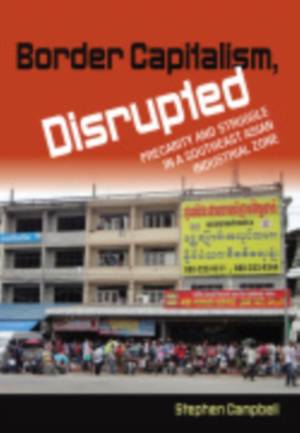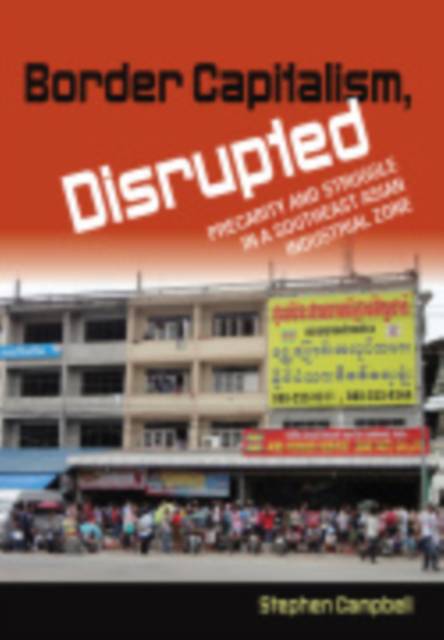
- Retrait gratuit dans votre magasin Club
- 7.000.000 titres dans notre catalogue
- Payer en toute sécurité
- Toujours un magasin près de chez vous
- Retrait gratuit dans votre magasin Club
- 7.000.000 titres dans notre catalogue
- Payer en toute sécurité
- Toujours un magasin près de chez vous
Border Capitalism, Disrupted
Precarity and Struggle in a Southeast Asian Industrial Zone
Stephen CampbellDescription
Border Capitalism, Disrupted presents an insightful ethnography of migrant labor regulation at the Mae Sot Special Border Economic Zone on the Myanmar border in northwest Thailand. By bringing a new deployment of workerist and autonomist theory to bear on his fieldwork, Stephen Campbell highlights the ways in which workers' struggles have catalyzed transformations in labor regulation at the frontiers of capital in the global south.
Looking outwards from Mae Sot, Campbell engages extant scholarship on flexibilization and precarious labor, which, typically, is based on the development experiences of the global north. Campbell emphasizes the everyday practices of migrants, the police, employers, NGOs, and private passport brokers to understand the "politics of precarity" and the new forms of worker organization and resistance that are emerging in Asian industrial zones.
Focusing, in particular, on the uses and effects of borders as technologies of rule, Campbell argues that geographies of labor regulation can be read as the contested and fragile outcomes of prior and ongoing working-class struggles. Border Capitalism, Disrupted concludes that with the weakened influence of formal unions, understanding the role of these alternative forms of working-class organizations in labor-capital relations becomes critical.
With a broad data set gleaned from almost two years of fieldwork, Border Capitalism, Disrupted will appeal directly to those in anthropology, labor studies, political economy, and geography, as well as Southeast Asian studies.
Spécifications
Parties prenantes
- Auteur(s) :
- Editeur:
Contenu
- Nombre de pages :
- 222
- Langue:
- Anglais
Caractéristiques
- EAN:
- 9781501711107
- Date de parution :
- 15-04-18
- Format:
- Livre relié
- Format numérique:
- Genaaid
- Dimensions :
- 152 mm x 229 mm
- Poids :
- 480 g







